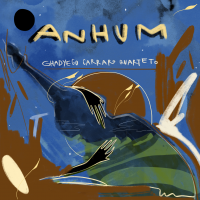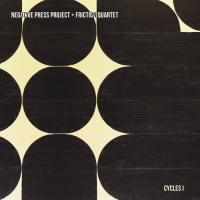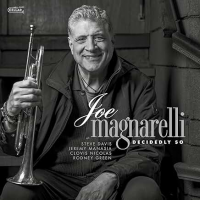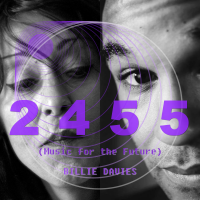Home » Jazz Articles » Album Review » Zlatko Kaućić: Diversity
Zlatko Kaućić: Diversity
Diversity isn't even the first multi-disc celebration of Kaučič's career. That honor goes to the triple album 30th Anniversary Concerts (Splasc(H), 2009) which included saxophonist Peter Brötzmann and singer Saadet Türkös. Since then, Kaučič's discography has featured a series of adventurous outings with high profile artists like Ab Baars on Canvas (NotTwo, 2015), Daniele D'Agaro on Disorder At The Border Plays Ornette (NotTwo, 2016), and Barry Guy on Without Borders (Fundacija Sluchaj, 2017).
Kaučič belongs to the lineage of tone colorists such as Tony Oxley and Paul Lovens, although he seems less beholden to free jazz expectations than either of them. He extracts rattles, reverberations, crackles, and other remarkable textures from a kit that includes homemade objects and electric zither, often alternating the resultant sounds in cell-like pulsations. He excels in the direct conversational environment of the duets on CDs two and five, where his unexpected timbres elicit surprising reactions. In larger group formats, Kaučič plays the full part while sensitively allowing breathing space for ensemble interchange.
CD one showcases a heavyweight encounter with Catalan pianist Agusti Fernandez and British saxophonist Evan Parker that constitutes the highlight of the whole collection. It uncoils in a stream of fast changing interaction and naturally emerging double acts. Initial flurries separated by silence become taut with tension. Kaučič perfectly paces Fernández's under-the bonnet alchemy as well as Parker's fluttering reiterations, split tones, and abstract lyricism. His transparency permits the interior piano resonances to be heard clearly in a tremendously empathetic trio.
Parker reappears on CD two, this time in a splendid twosome with the percussionist. After an incremental percussive start, Parker is focused and incantatory, which Kaučič matches through an unbroken rumble. On "Kras #2," the electric zither's sudden sonic distortion creates a conundrum for the saxophonist, who responds with a lightly articulated, circularly-breathed murmur. Further give and take ensues when the drummer moves behind his kit. On "Kras #3," they blend meditative minimalism with a tolling undercurrent, but the spiky discourse on "Kras #4" finds both men at their most intensely animated, invoking classic free jazz drum and saxophone pairings.
The nine tracks on CD three present Kaučič alone in the studio, with the percussionist as a painter of sound. The electric zither develops into a major component, making an exhilarating entry on "Drive Through Obstacles," which pitches the piece somewhere between noise and prog rock. He later evokes Sun Ra in some of his wilder moments and " Himna Za Mojo Teto Karlo" even recalls a duel between Ra and a free jazz drummer. Kaučič betrays a fondness for combining order with chaos as he mixes rhythmic cells with unusual textures, sometimes in call and response, at other times in striking juxtapositions. He fully exploits the studio environment, expanding his palette to successfully maintain interest, even adding warped vocalizations to the mix on "Predor."
On CD four Kaučič joins with three other improvisers: acoustic bassist Rafal Mazur and trumpeter Artur Majewski from Poland and Danish saxophonist Lotte Anker at a concert in Slovenia. They negotiate a shared ethos of collective improvisation, characterized by nervy exchanges, dense voicings, and sublimated egos. Majewski figures as one of the dominant voices, suggesting a Polish Bill Dixon with his spluttered, gusty smears. It's not until "Iconic Thoughts" that the interplay turns a little sparser, with a passage for tinkling percussion and trumpet susurrations one of the subtle peaks. This is selfless music that enfolds the listener in a warm embrace. One piece by this agglomeration, perhaps from the same concert, has already been released under Anker's name on Plodi (Klopotek, 2017).
The final CD contains two different duets. In the first duet with the late German trombonist Johannes Bauer, the twosome partake of stark dialogue. Bauer's predilection for spontaneously structured improvisation draws orderly rejoinders from Kaučič. The trombonist'ss muttered imprecations and exhalations mesh well with Kaučič's melodic/rhythmic motifs in a wonderful pairing. The second portion of the disc twins Kaučič with Phil Minton's incredible vocal gymnastics for a surprisingly percussive meeting.
Considered as a whole, this box set forcefully makes the case that Kaučič deserves far more attention than he has even gathered so far. He proves adept at both stimulating his partners to think anew, while remaining resolutely himself.
Tags
zlatko kaucic
Album Reviews
John Sharpe
Diversity
Not Two Records
Tony Oxley
Paul Lovens
Agusti Fernandez
evan parker
Rafał Mazur
Artur Majewski
Lotte Anker
Johannes Bauer
Phil Minton
PREVIOUS / NEXT
Support All About Jazz
 All About Jazz has been a pillar of jazz since 1995, championing it as an art form and, more importantly, supporting the musicians who make it. Our enduring commitment has made "AAJ" one of the most culturally important websites of its kind, read by hundreds of thousands of fans, musicians and industry figures every month.
All About Jazz has been a pillar of jazz since 1995, championing it as an art form and, more importantly, supporting the musicians who make it. Our enduring commitment has made "AAJ" one of the most culturally important websites of its kind, read by hundreds of thousands of fans, musicians and industry figures every month.






















